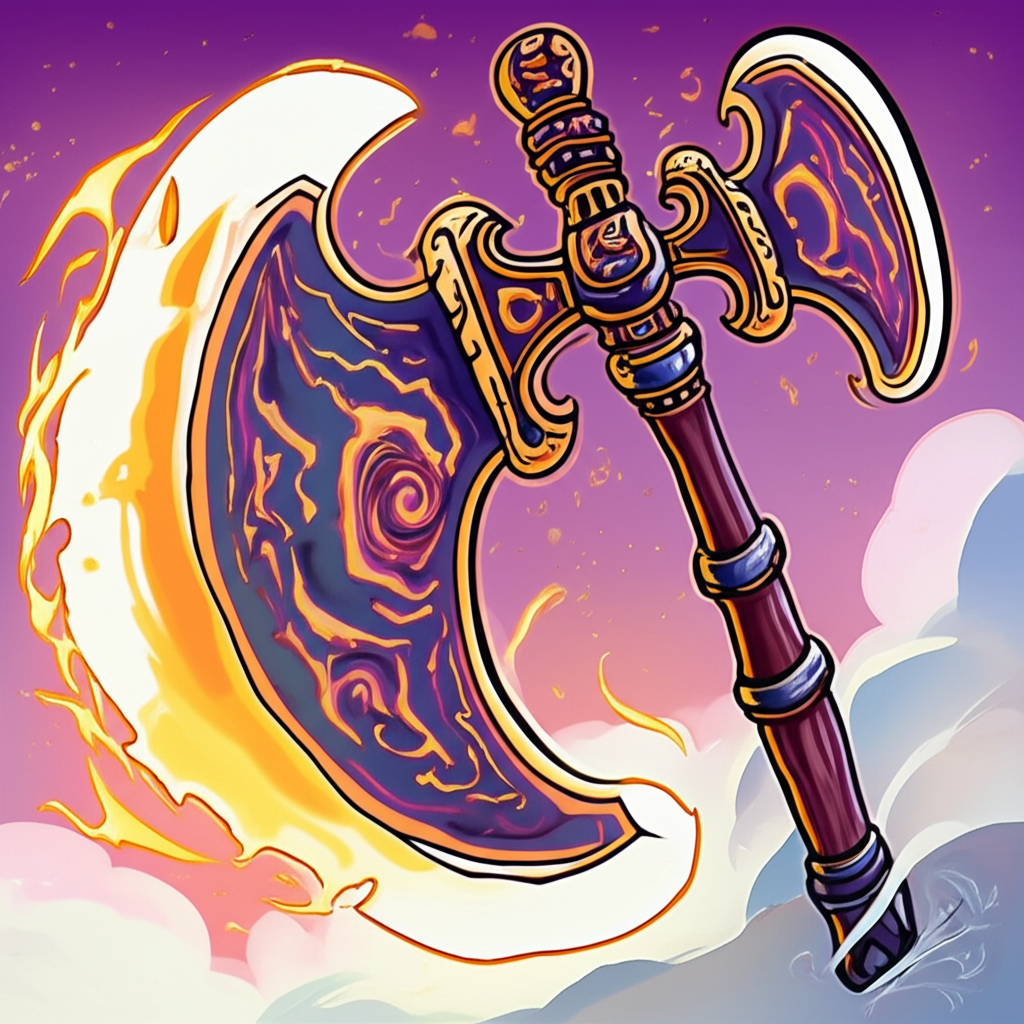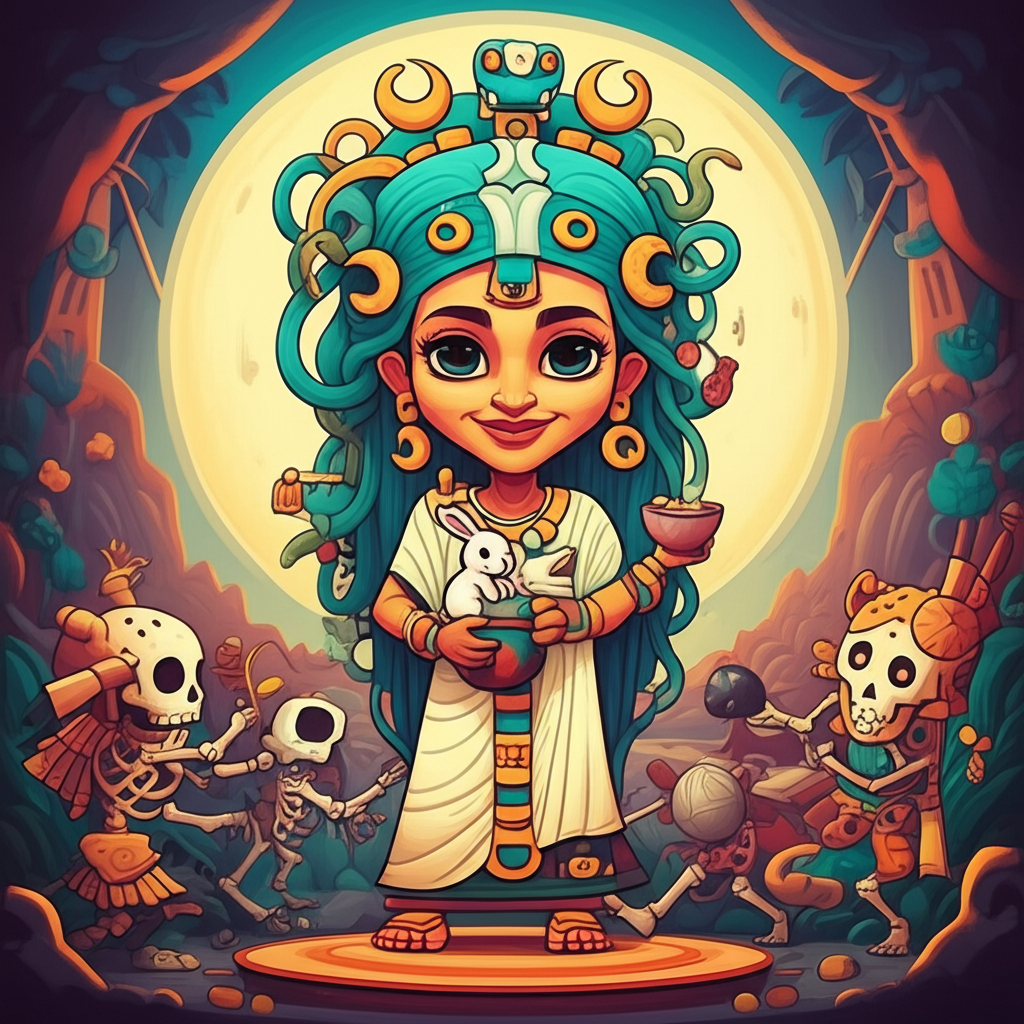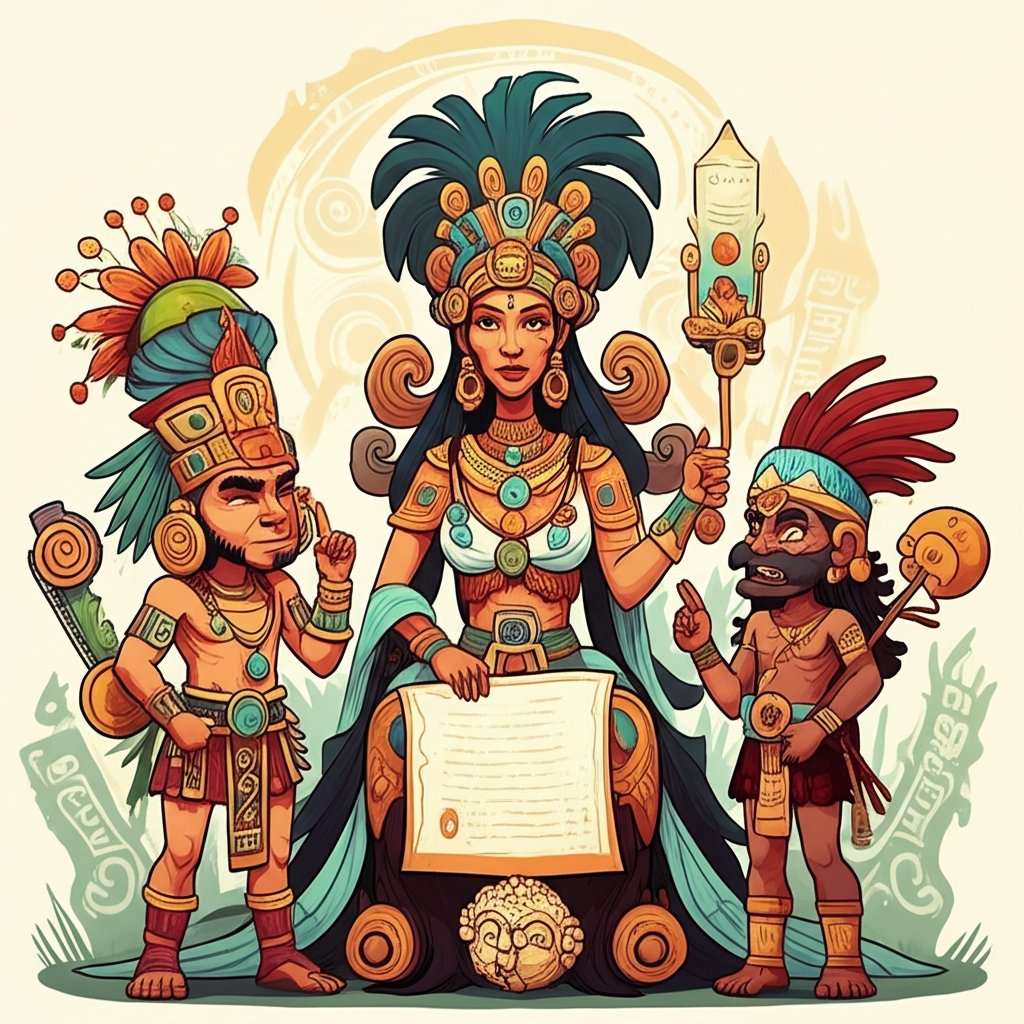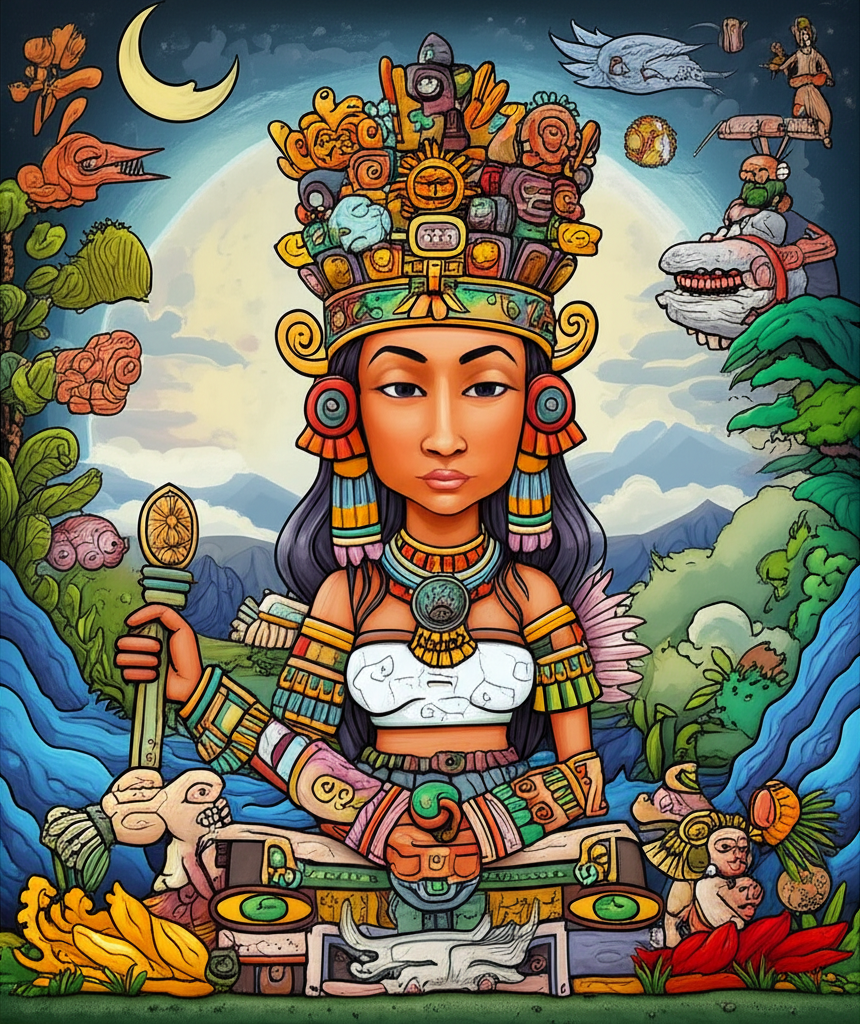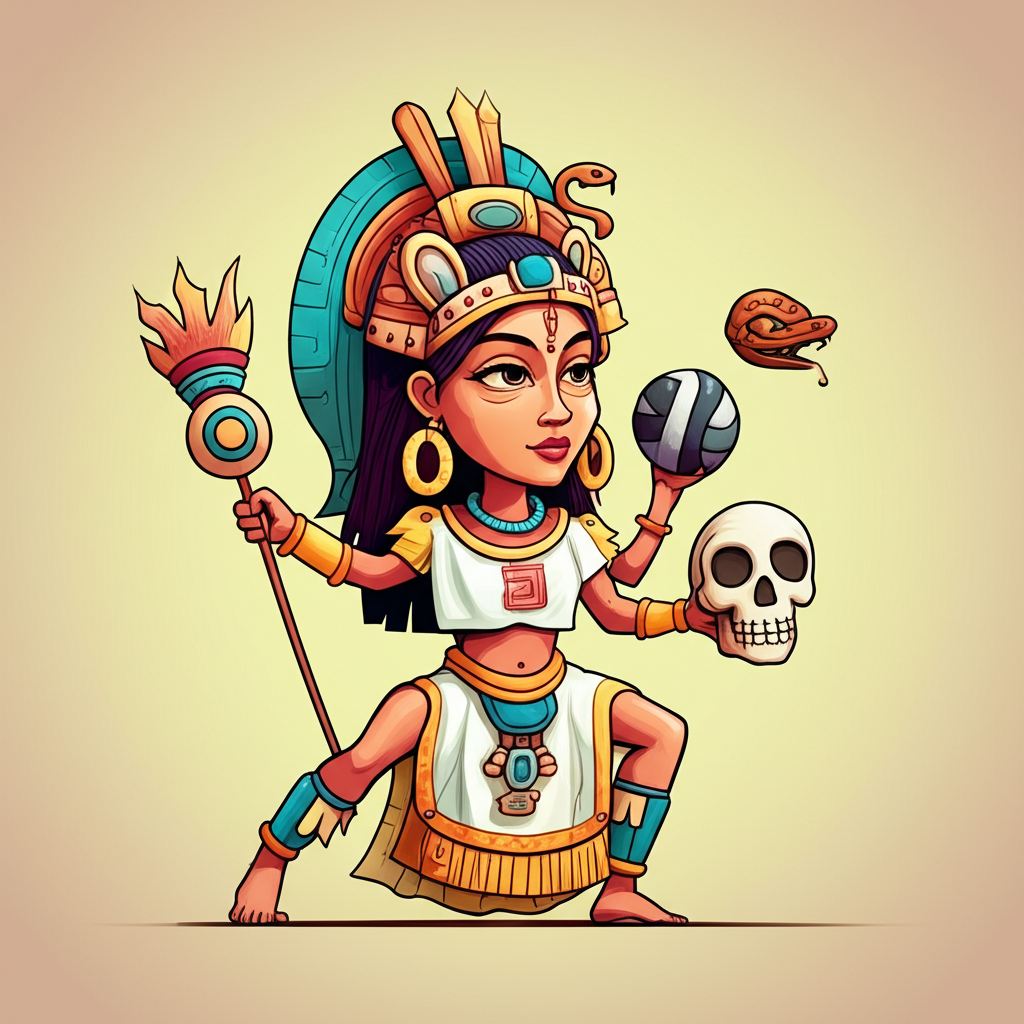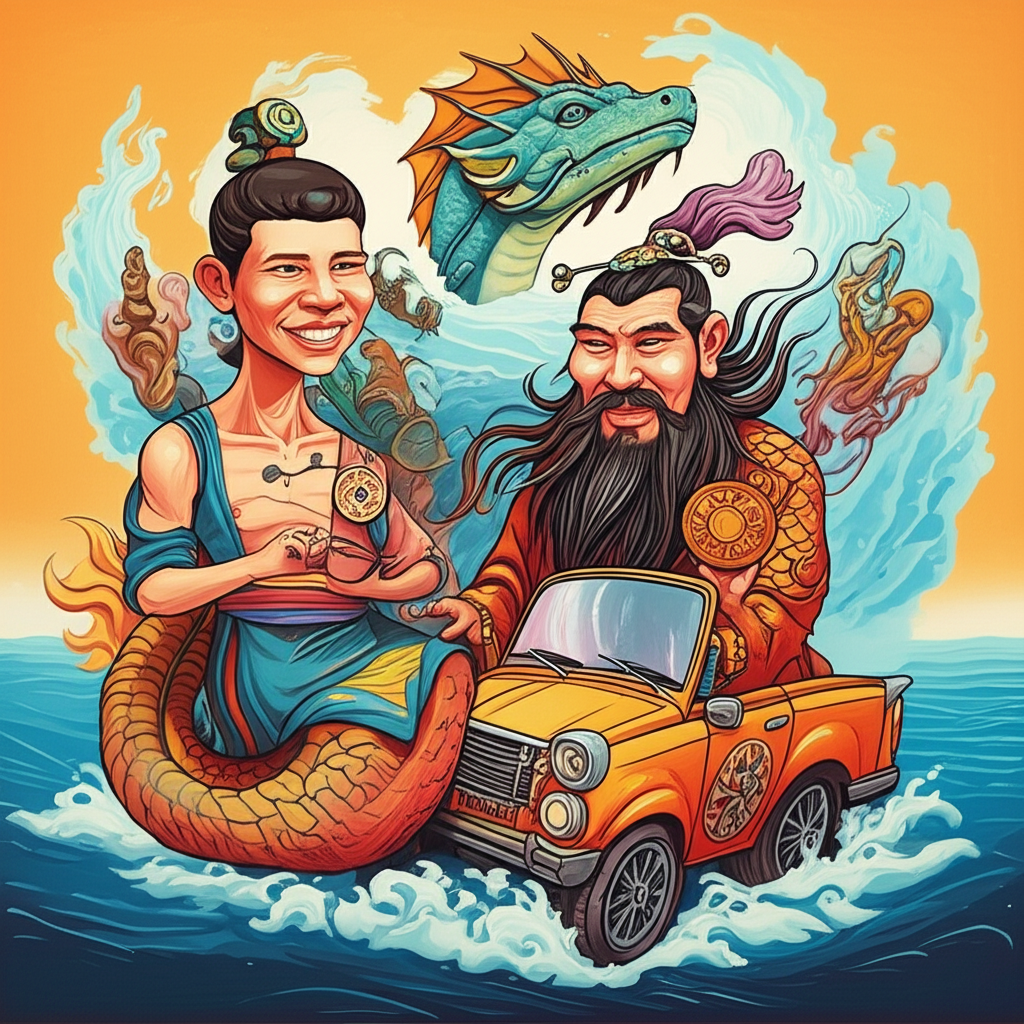
Introduction
From the mists of ancient China, a land steeped in rich traditions and vibrant folklore, comes the legend of Fuxi and the Forgotten Sea. This is not a historical account, but a traditional story, a myth passed down through generations, whispered around crackling fires and painted on ancient scrolls. It’s a tale meant to explain the world, to entertain, and to perhaps impart a lesson or two. We explore it now not as a statement of fact, but as a window into the imagination of a people long past, understanding their fears, their hopes, and their understanding of the cosmos.
Origins and Cultural Background
The story of Fuxi likely originated during the Neolithic period in China, a time when settled agriculture was emerging and societies were becoming more complex. This era, stretching roughly from 10,000 to 2,000 BCE, was characterized by a deep connection to the natural world. People relied on the seasons, the rivers, and the land for their survival. Their worldview was animistic, meaning they believed that spirits resided in all things, from rocks and trees to animals and the sun. Natural disasters were seen as the wrath of these spirits, and harmony with nature was paramount. Society was organized around clans and tribes, with elders holding authority based on their wisdom and experience. This pre-literate society relied on oral traditions to preserve their history, their laws, and their understanding of the universe. Myths like that of Fuxi served as both entertainment and a way to transmit knowledge and values across generations.
Character Description: Fuxi
Fuxi is often depicted as a serpentine or dragon-bodied being with a human head, or as a human figure dressed in animal hides. He is attributed with numerous achievements that mark the transition from a primitive existence to a more civilized society. He is credited with inventing writing, fishing nets, hunting tools, and musical instruments. He is also said to have established the institution of marriage, bringing order and structure to early human relationships.
Symbolically, Fuxi represents the forces of creation, order, and civilization. His serpentine body connects him to the earth and its mysteries, while his human head represents intellect and the potential for progress. He is not a god in the sense of being a divine being to be worshipped, but rather a cultural hero, an ancestor who shaped the destiny of humankind. His inventions symbolize humanity’s ability to adapt, innovate, and overcome the challenges of the natural world. The establishment of marriage represents the importance of social harmony and the building of stable communities.
Main Story: Fuxi and the Forgotten Sea
In the dawn of time, when the world was still young and untamed, chaos reigned. The earth was a watery expanse, and monstrous creatures roamed the lands. Humanity was scattered and vulnerable, lacking the tools and knowledge to thrive. It was during this time that Fuxi emerged, a being of immense wisdom and strength.
He surveyed the chaotic world and saw the suffering of humankind. With a heavy heart, he decided to bring order to the chaos. He began by teaching humans how to hunt and fish, providing them with a reliable source of food. He showed them how to weave nets from plant fibers and craft tools from stone and bone. The people, grateful for his guidance, began to flourish.
But the greatest challenge came from the Forgotten Sea, a vast and turbulent body of water that threatened to engulf the land. This sea was home to a monstrous serpent, a creature of immense power and rage, whose thrashing caused earthquakes and floods. The people lived in constant fear of its wrath.
Fuxi knew that he had to confront this serpent to secure the safety of humankind. He journeyed to the shores of the Forgotten Sea, carrying with him a magical gourd filled with a potent elixir. He stood on the edge of the tumultuous waves and called out to the serpent.
The serpent emerged from the depths, its eyes burning with fury. It lashed out at Fuxi, unleashing a torrent of water and wind. But Fuxi stood firm, his eyes unwavering. He uncorked the gourd and poured the elixir into the sea.
As the elixir spread through the water, the serpent began to weaken. Its rage subsided, and its movements became sluggish. Fuxi seized the opportunity and used his immense strength to subdue the creature. He bound it with chains of pure energy, preventing it from causing further destruction.
With the serpent defeated, the Forgotten Sea calmed. The waters receded, revealing new lands for humankind to cultivate. Fuxi then taught the people how to build dams and canals to control the flow of water, preventing future floods. He established laws and customs to ensure peace and harmony within the community. He then taught them music to soothe their souls, and writing to record their history.
Fuxi eventually ascended to the heavens, leaving behind a world transformed by his wisdom and courage. The people remembered him as a hero, a benefactor, and a symbol of hope. They continued to tell his story, passing it down through generations, ensuring that his legacy would never be forgotten.
Symbolism and Meaning
The myth of Fuxi and the Forgotten Sea is rich in symbolism. The Forgotten Sea represents the forces of chaos and destruction that threaten human existence. The monstrous serpent embodies the untamed power of nature, the potential for devastation, and the fear of the unknown. Fuxi, on the other hand, represents the forces of order, civilization, and human ingenuity. His defeat of the serpent symbolizes humanity’s ability to overcome the challenges of the natural world through knowledge, skill, and courage. The elixir he uses to subdue the serpent can be interpreted as wisdom, technology, or the power of human intervention.
The story also highlights the importance of leadership, social harmony, and the pursuit of knowledge. Fuxi’s actions demonstrate the responsibility of leaders to protect their people and to guide them towards a better future. His establishment of laws and customs emphasizes the importance of social order and cooperation. His inventions and teachings underscore the value of knowledge and the power of human ingenuity to transform the world.
Modern Perspective
The myth of Fuxi continues to resonate in modern culture. He appears in various forms of literature, movies, and video games, often as a wise and benevolent ancestor or a powerful deity. In cultural studies, the myth is analyzed as a reflection of ancient Chinese values and beliefs, providing insights into the social, political, and religious landscape of the time. His story serves as inspiration for modern narratives that explore themes of leadership, innovation, and the struggle against adversity. The figure of Fuxi is also used in contemporary art and design, representing the rich cultural heritage of China.
Conclusion
The story of Fuxi and the Forgotten Sea is a testament to the power of storytelling. It’s a reminder of how ancient people used myths to explain the world, to teach valuable lessons, and to inspire hope in the face of adversity. It is crucial to remember that this is a cultural story, a product of human imagination, and not a statement of divine truth. As Muslims, we understand and believe that only Allah is the true Creator and Sustainer of the universe.
This story, like countless others from different cultures around the world, offers a glimpse into the human spirit, our ability to create, to dream, and to find meaning in the world around us. Let us appreciate these stories as a part of our shared human heritage, celebrating the power of imagination and the enduring tradition of storytelling.
